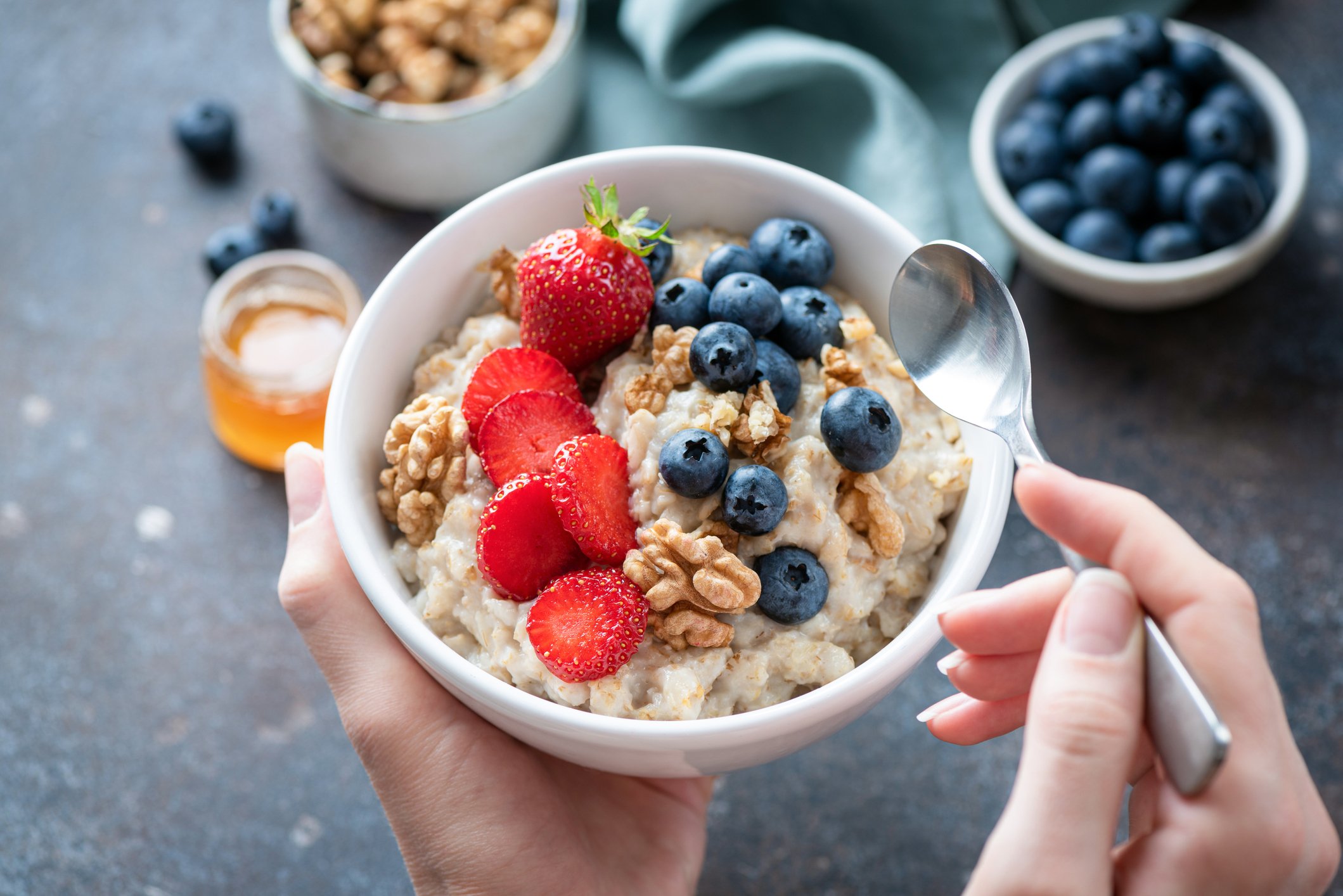

Eating with Purpose: Food’s Role in Managing Diabetes
November is National Diabetes Month. Although living with diabetes can be challenging, simple adjustments can be beneficial to help manage and promote a healthy lifestyle.
Following a meal plan and physical activity can help with controlling your blood sugar (or blood glucose) levels. Taking control of your blood sugars can be done by balancing your intake of food and drinks, your physical activity, and your diabetes medications.
Food plays a big role in managing your blood sugars. The types of food, quantity, and timing of eating all play a role in keeping your blood sugars within a certain range.
Here are some healthy habits to adopt when managing your blood sugar:
Choose high-fiber carbs. Increase the amount of fiber you consume by eating at least half of all grains as whole-grain foods each day. Brown rice, buckwheat, oatmeal, whole-wheat breads and cereals are good examples. Cooked dried beans and peas (legumes) can also lower cholesterol and provide extra protein. Whole fruits also contain fiber, vitamins and minerals and can satisfy your sweet tooth.
Mix it up. Choose foods from each food group. By adding variety, you increase your chances of getting a healthy balance of beneficial nutrients.
Cut the fat. Opt for fish, skinless poultry, and extra-lean meats whenever possible. Go meatless routinely by swapping out meat for plant proteins like tofu, lentils, and other legumes. Bake, broil, roast, grill, boil or steam foods instead of frying. Choose more fat-free dairy products. Top salads with lemon juice or balsamic vinegar instead of creamy or oily dressings.
Not so salty. Minimize salt and substitute more pepper, herbs, and spices. Eating less salt helps control blood pressure, protect the kidneys and reduce fluid retention.
Mind your portions. Try not to overeat at any one meal. Spread your carbs out throughout the day. Read food labels and pay attention to portion sizes and nutrition content.
Focus on your food. Avoid multitasking while eating. Eat slowly. Take time to savor the tastes, textures and aromas from the foods that are nourishing your body.
Don’t skip. Skipping meals can make you more hungry, moody and unable to focus. Learn what works best for you. Find an eating pattern that is healthy for your blood glucose levels and stick with it.
If you or someone you love thinks they may have diabetes, talk to your doctor to determine your blood glucose levels. A registered dietitian can help you develop good habits to manage your diabetes, understand the different roles of foods and ensure you're getting the proper amount and variety of nutrients in your diet.
Becky Espinel is a Registered Dietitian Nutritionist with Barton Nutrition. Barton Nutrition works with care providers to develop nutrition programs that fit your individual needs. Barton Dietitians are available for consultation. For more information or to schedule Nutrition counseling at Barton, call 530.543.5825 or visit BartonHealth.org.